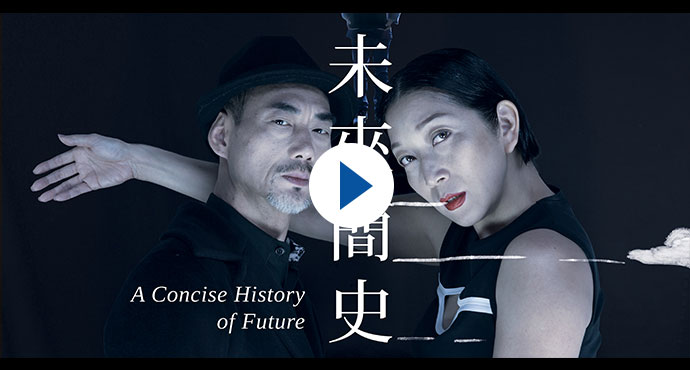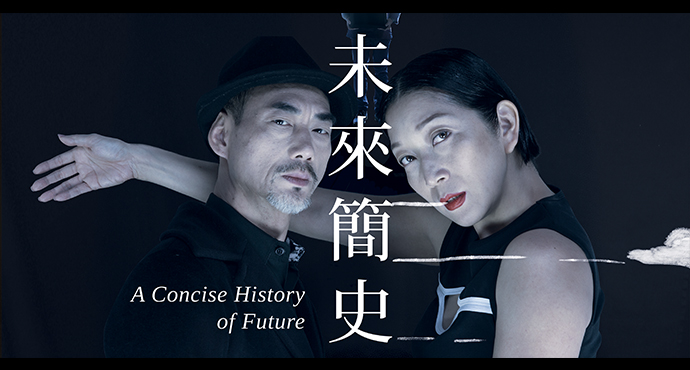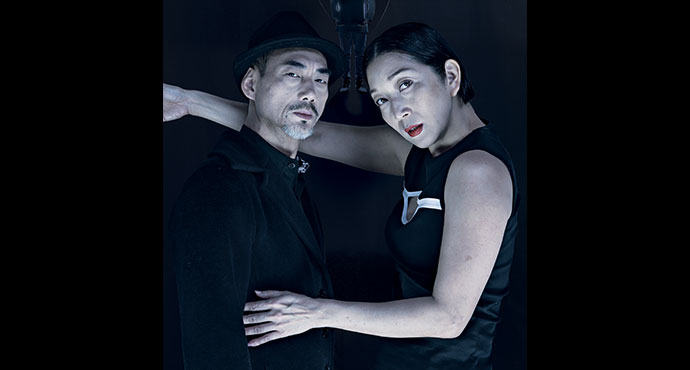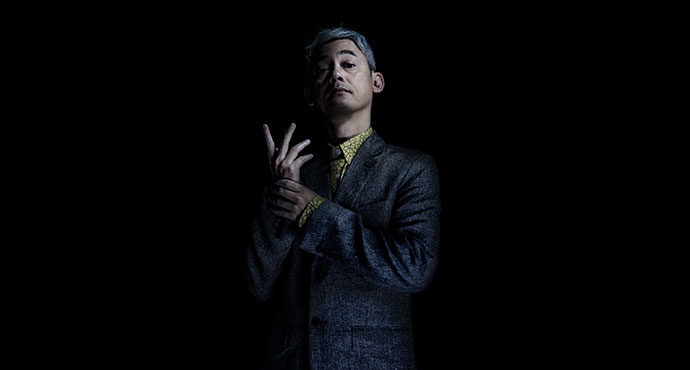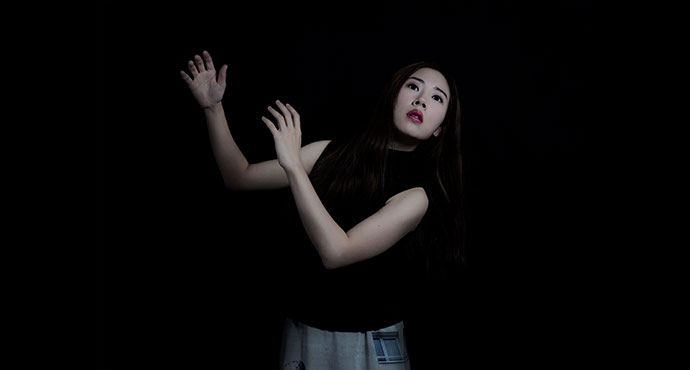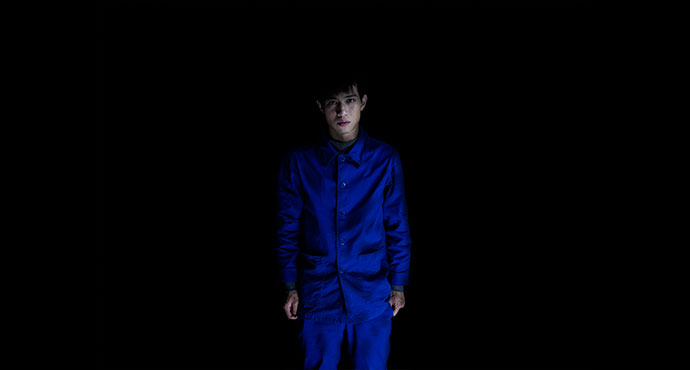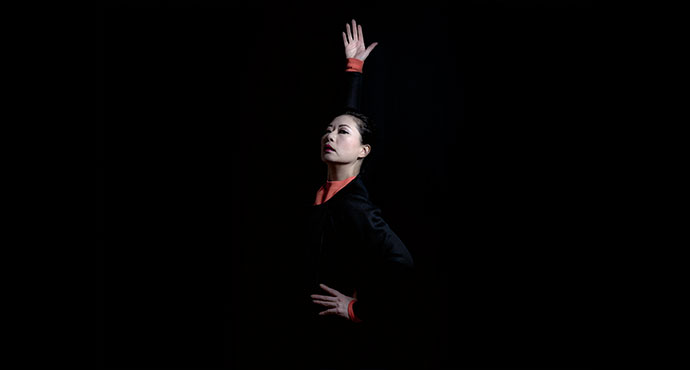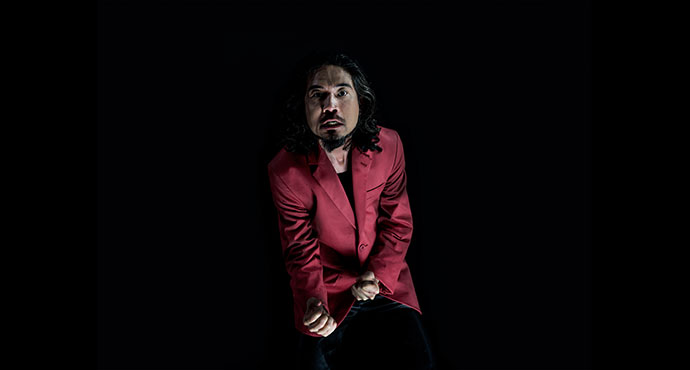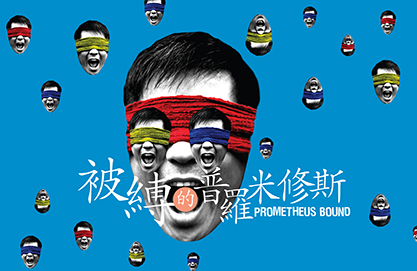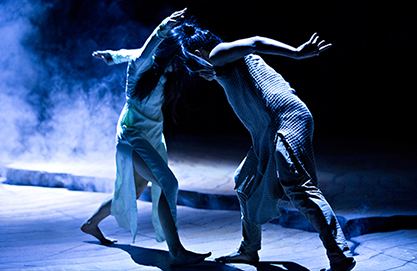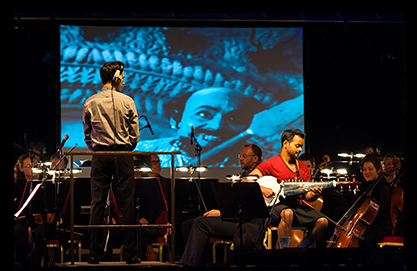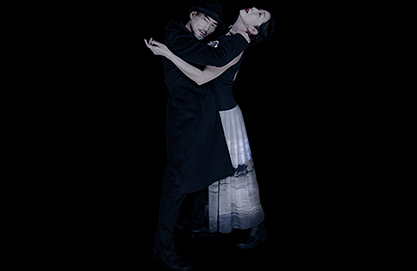
-
The first play by a Chinese playwright selected by Berliner Festspiele Theatertreffen Stückemarkt
A thought of millions of people, reverses South and North
Connected fates are the journeys swallowed by you and me…"Resists any linear narrative dramaturgy, using highly concentrated poetical interweaving to elaborate the cruel phantasms of a contemporary society of asynchronies"
–– Kathrin Roggla (Jury member, Berliner Festspiele Theatertreffen Stückemarkt 2016)A country on the brink of civil war. Two generations, two cities, two opposite journeys. While the entire population is fleeing towards the South, the outsider struggles to get to the North in order to fulfil his mission. Time levels intermingle. With nowhere to run or hide, where is history headed? Defying the linear narrative, witness barbarism unfolds in asynchrony.
Reframe Theatre
Every creation of theatre work is a new and unique experience. Every work therefore experiences a new process of reframing. Reframe Theatre aims at exploring new writing, scenography, relationship between body and space and is established by Yan Pat-to, a playwright, director and part-time university lecturer. Renowned British playwright and critic Dan Rebellato has described Yan as a "talented, engaged, enthusiastic, committed playwright whose work is extremely interesting, mixing the political and personal with power and effect".
Costumes sponsored by
Make-up and Hair-styling sponsored by
Photo credit: Philip Kuen
Artist's Facebook: https://www.facebook.com/reframetheatre -
The Arts Salon Series and TalksA Format for the Future
The desire to imagine the future is an intrinsic part of human consciousness. Across time and cultures, writers and artists have attempted to foresee what may happen next. Here, Yan Pat-to examines the theatrical conventions for depicting reality and phantasm, and discusses the significance of his boundary-breaking play, A Concise History of Future, selected by Berliner Festspiele Theatertreffen Stückemarkt 2016.
Speaker: Yan Pat-to (Playwright / Director)
Venue Sponsored by The Commercial Press (H.K.) Ltd.In Cantonese
Free admission. Limited seats available on a first-come-first-served basis
Pre performance TalksSpend half an hour before the performance to learn from experienced art critics and cultural experts on how to appreciate the show.
In Cantonese
Free admission on a first-come-first-served basis
Speaker: Damien Cheng (Theatre Critic) -
A journey of suffering within magical reality
By Miu Law
Founding member of the experimental art group HerStory Polygon and freelance art practitionerDirector Yan Pat-to's drama, A Concise History of Future, was created after completing an MA in Playwriting in the UK, becoming the first work in his Posthuman Journey theatre series. The English original was one of five plays and projects selected out of more than 300 Europe-wide theatre text entries at Berliner Festspiele Theatertreffen Stückemarkt 2016, being commended by the panel of judges for simultaneously capturing a feeling for the local and a vision of the global.
As the world moves towards homogeneity, no one can escape the sense of catastrophe and despair hovering over the near future. The play explores the pressing question of what can be held onto in a world where distance has broken down and ethical behaviour has been lost.
New writing and magical realism
As a result of Yan's deep knowledge of new European theatrical trends, A Concise History of Future features a blend of British and French new writing. While the tight text structure of the British style serves as the foundation, the play also draws on characteristics of French writing in playing sensuously with words and lavish use of philosophical images. It is thus hard to define an identity for the play, which looks at society from beyond national boundaries along with multiple layers of magical images.
"Though the work draws inspiration from China, I have chosen not to adopt realism because it will confine creativity and restrict what I am trying to express, that is, what does the future mean?" Yan said when he spoke to me in a recent interview. Every step that people take at any moment can bring a change to the world. In Buddhist cosmology, the Worlds of Trichiliocosm concept puts forward the idea that before people set out on a journey, the possibilities of what is to come are endless. In topsy-turvydom, a sense of agitation and insecurity drive people to long for works that foretell the future. Yet Yan believes such an outlook is a trap. "The future, as suggested by Buddhism, is exactly something that cannot be predicted," he said.
Given this, Yan has written A Concise History of Future in the style of magical realism. Through imaginative staging, it opens up endless possibilities for the future, inviting members of the audience to choose one of their own.
The ethics of being away from home and suffering
What A Concise History of Future illustrates is the ethics of handling suffering and crisis. What should we do if we do not want to watch others suffer? Yan does not directly answer the question but delivers his thoughts through the image of a stranger.
In one of the journeys in the play, a stranger sets out in the opposite direction to others, feeling indifferent towards the separation that occurs in life and death. Such is the representation of near-nothingness. Yet is it possible for a person to be in a complete state of nothingness? What has the stranger experienced at the end of the journey? The answers are the audience's task to work out. Still, Yan implies, given the stranger is away from home, the possibility of returning home remains. When someone becomes a stranger to him or herself, and the heart seems dead, that person will eventually discover their bond with a place to be much stronger than anticipated.
Home is where our hearts can find rest. In the clamorous world where no one can offer a single efficacious solution, it would be better not to try to escape but to face suffering squarely with others when at its most excruciating. To Yan, it may be that this is the most basic ethical responsibility for people to shoulder in the future.
- Please refer to Chinese version.

